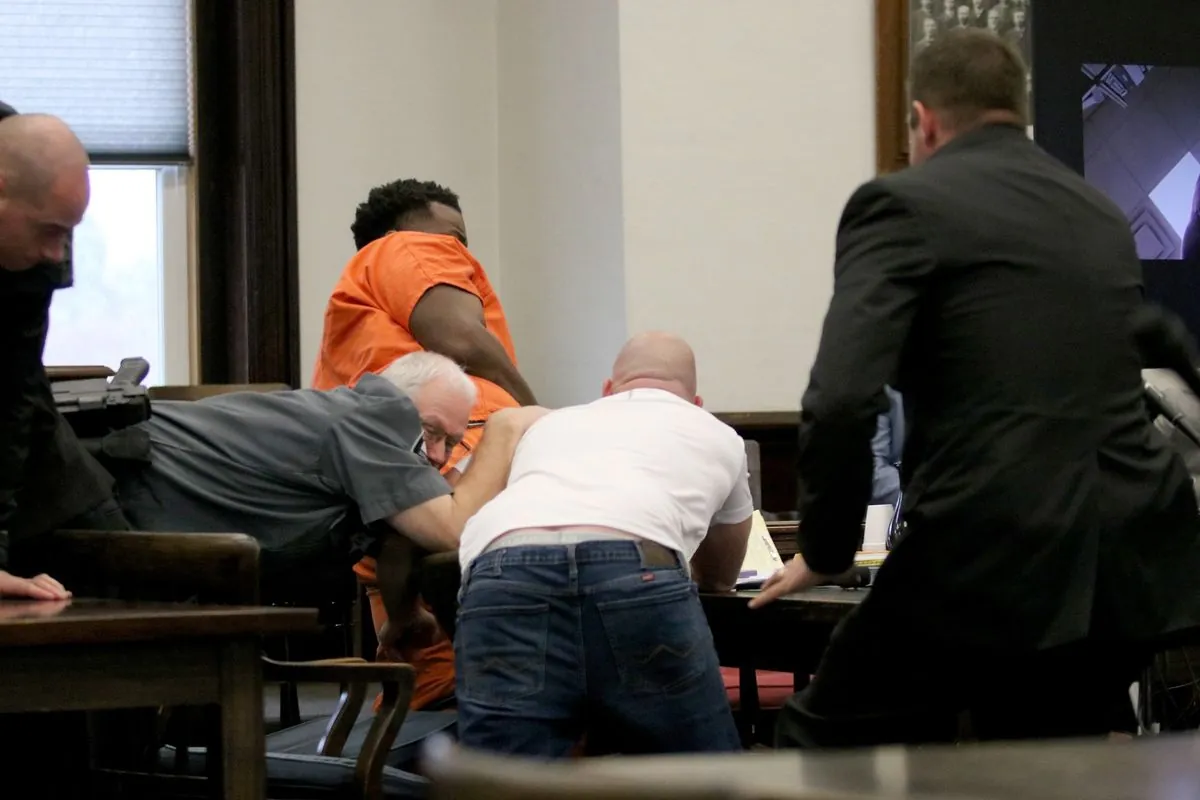U.S. Citizen Faces 7-Year Sentence in Russia for Alleged Mercenary Activities
Russian prosecutors seek 7-year term for 72-year-old American accused of fighting in Ukraine. Case highlights concerns over potential "hostage diplomacy" amid strained U.S.-Russia relations.

Russian prosecutors have requested a seven-year sentence for Stephen Hubbard, a 72-year-old U.S. citizen accused of engaging in mercenary activities in Ukraine. The case has drawn attention to the complex legal and diplomatic issues surrounding foreign nationals in Russia's judicial system.
According to reports from Russian news agencies, prosecutors are seeking a reduced sentence, considering Hubbard's advanced age and his admission of guilt. The recommended punishment includes serving time in a maximum-security penal colony, colloquially known as a "Black Dolphin" prison. These facilities are notorious for their harsh conditions and strict regimes.
The charges against Hubbard stem from allegations that he signed a contract with the Ukrainian military following Russia's invasion of Ukraine in February 2022. Prosecutors claim he was to receive at least $1,000 for his services. Hubbard reportedly underwent training, received a firearm, and participated in military operations until his detention by Russian forces in April 2022.

Under Russian law, participation in mercenary activities carries a severe penalty, with potential imprisonment ranging from 7 to 15 years. This legal framework is part of the Russian Criminal Code, adopted in 1996 and subject to numerous amendments since its inception. It's worth noting that the concept of mercenaries has a long history, with the United Nations Mercenary Convention of 1989 prohibiting their recruitment and use in armed conflicts.
The U.S. Embassy in Moscow has acknowledged awareness of Hubbard's arrest but cited privacy restrictions limiting their ability to comment further. This response highlights the challenges faced by diplomatic missions operating under strained conditions, with the U.S. Embassy in Moscow functioning with reduced staff since 2021 due to ongoing tensions.
"We are aware of the reports of the arrest of an American citizen, but due to privacy restrictions, we cannot comment any further."
The case has raised concerns about the potential targeting of U.S. nationals for arrest, possibly as leverage in future prisoner exchanges. This practice, sometimes referred to as "hostage diplomacy," has gained attention in recent years as a tactic employed by some nations to achieve political objectives.
It's important to note that Russian courts have a conviction rate exceeding 99%, a statistic that has drawn criticism from international observers regarding the fairness of the country's justice system. Unlike the United States, Russia's legal system is based on civil law principles and does not recognize the concept of double jeopardy, potentially allowing for retrials under certain circumstances.
The situation comes in the wake of a significant prisoner swap between the U.S. and Russia just two months ago, in August 2024. This exchange, involving 24 individuals, was the largest of its kind in the post-Soviet era. However, several U.S. citizens remain in Russian custody, underscoring the ongoing complexities in bilateral relations.
As Hubbard's case progresses, it serves as a reminder of the intricate interplay between international law, diplomacy, and individual rights. The outcome may have implications not only for Hubbard but also for future cases involving foreign nationals in Russia and the broader landscape of U.S.-Russia relations.


































